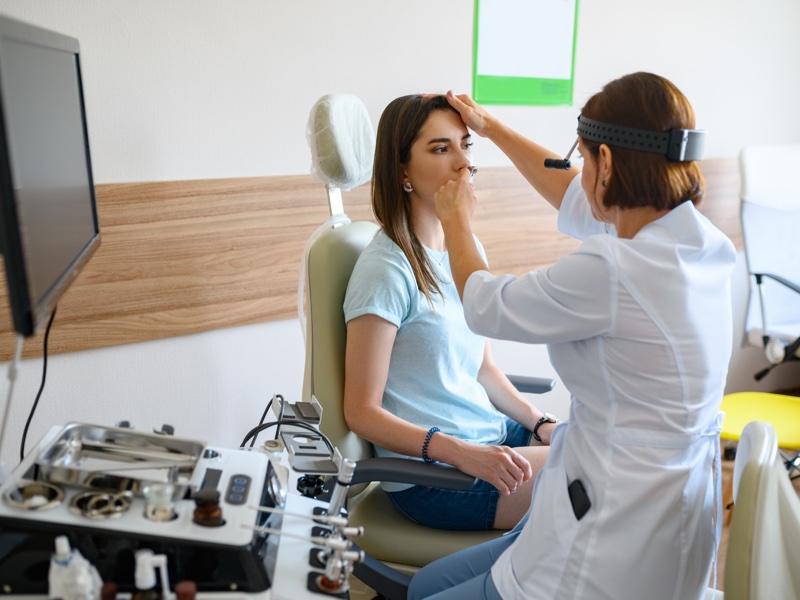In the ever-evolving landscape of healthcare, technology continues to play a pivotal role in transforming the way we diagnose and treat medical conditions. One of the most promising areas of innovation is the application of Artificial Intelligence (AI) in medical diagnostics. AI tools are revolutionising the accuracy and efficiency of medical assessments, leading to quicker diagnoses and improved patient outcomes. In this blog, we’ll explore five cutting-edge AI tools that are making waves in the field of medical diagnostics.

1. U-Net Radiology : AI-Powered Image Analysis
AI-driven image analysis is changing the game in radiology. Medical imaging, such as X-rays, MRIs, and CT scans, has been greatly enhanced by AI algorithms. These tools can quickly and accurately identify abnormalities, tumours, fractures, and other conditions. AI’s ability to process vast amounts of data in a short time ensures that doctors receive comprehensive insights, improving diagnostic accuracy and reducing human error. Other than classification, the U-Net specialises in the automated segmentation of medical images. Segmentation vastly improves image analysis and practicing radiologists. They may even point out anomalies that may not be obvious to the naked eye.

2. PathAI: AI-Based Risk Assessment
Predictive analytics using PathAI is transforming the way we assess patient risk. By analysing patient data, including medical histories, genetic information, and lifestyle factors, AI can predict the likelihood of developing various diseases. This proactive approach allows for early intervention, personalised treatment plans, and improved preventive care. PathAI is a company focused on advancing machine learning technology to aid pathologists in improving the precision of their diagnoses. Their primary objectives involve minimizing errors in cancer diagnosis and creating personalized medical treatment approaches. To achieve these goals, PathAI has collaborated with entities such as Bristol-Myers Squibb and the Bill & Melinda Gates Foundation, with the aim of extending their AI technology to diverse segments of the healthcare industry.

3. VizAI: AI in Cellular Analysis
VizAI is revolutionising the field of pathology by offering precise cellular analysis. AI tools can scrutinise tissue and cell samples with unparalleled accuracy, making it easier for pathologists to detect cancer, autoimmune diseases, and other conditions. Automated pathology slides can save time, reduce errors, and improve diagnostic speed. Within the healthcare sector, time sensitivity can be a critical factor in patient outcomes, and VizAI is dedicated to expediting responses through AI-driven healthcare solutions. The company’s AI solutions are designed to swiftly identify issues and promptly alert care teams, facilitating prompt discussions, quicker treatment decisions, and ultimately, life-saving interventions.

4. EnlicticAI: AI-Enhanced Cancer Detection
Cancer diagnosis and screening have seen significant advancements with AI. Machine learning algorithms can analyse mammograms, detect suspicious lesions, and even differentiate between benign and malignant tumours. This tool’s ability to identify cancers at an early stage is crucial for better survival rates and less invasive treatments. EnliticAI specialises in the creation of advanced medical tools using deep learning technology to enhance the efficiency of radiology diagnoses. The company’s advanced deep learning system is designed to scrutinise unstructured medical information, such as radiology images, blood tests, EKGs, genomics, and patient medical histories. This in-depth analysis equips physicians with more precise, real-time insights into a patient’s immediate medical requirements, enabling them to make more informed and accurate medical decisions.

5. Freenome: Remote Diagnostics
Freenome AI is breaking down geographical barriers to healthcare. Utilizing AI-driven chatbots and virtual assistants for remote diagnostics can offer preliminary evaluations, symptom evaluation, and guidance to individuals, thereby improving healthcare accessibility and accelerating the diagnostic procedure. AI is applied in general screenings, diagnostic assessments, and blood tests for cancer detection. Freenome’s objective is to employ AI in routine screenings to identify cancer at its earliest phases, with the intention of advancing novel therapies.

Comments